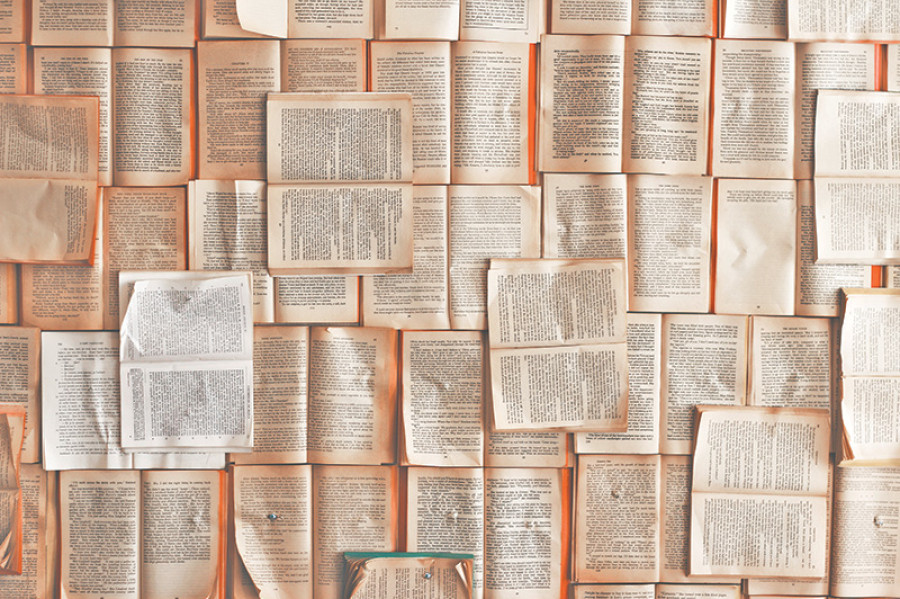Miscellaneous
Falling in and out of love with words
When at home and not working, my wife and I usually read books, sitting alongside each other. And when she comes across a word she is not familiar with, she invariably asks me its meaning.
Ajit Baral
When at home and not working, my wife and I usually read books, sitting alongside each other. And when she comes across a word she is not familiar with, she invariably asks me its meaning. If it is a word that I know, I explain what it means. If not, I look it up in the dictionary and read out its meaning to her. Of course, I can tell her that I don’t know the word and get back to my reading. But I don’t, because I have to know every new word that comes to my notice. This habit of mine has to do with my father.
Though not a voracious reader, my father used to read art-related books and lots of magazines. And whenever he stumbled upon a new word, he would underline it and then thumb through the dictionary to find its meaning and write it down, including its phonetics, on the margins of whatever that he was reading, in his neat and immaculate handwriting. I don’t know why he did this. Maybe writing down the meanings of unfamiliar words helped him remember them and expanded his vocabulary. Having received only a forgettable government education, his vocabulary wasn’t great, which becomes obvious if one flips through the books and magazines of his that we still have at home.
This fatherly trait must have lingered somewhere in my subconscious, as I wrote down the meanings of hitherto unfamiliar and highfalutin words, which were given to me to prepare for a school-level spelling contest long ago. I don’t recall any words on the list now, but it was long. Unfazed, I wrote down the meanings of all words, a few at a time, on the notebook that I had received as a prize for coming in second during that very competition. I would memorise the meanings of these words, again a few at a time, and come back to them later to make sure that I still remembered them.
This habit of writing down the meanings of new words and memorising them must have sparked my fascination with words. For soon after I exhausted the list, I started to read whatever I could lay my hands on to discover new words. For me, reading was not an end in itself but a means to learning new words. Every new word that I came across would imbue me with a sense of achievement, fulfillment and discovery, and I would feel as if I have just sieved out a speck of gold from a pan full of sludge dug out from a riverbed. No wonder, I read more and more, writing down the meanings of new words as I came across them.
In time, however, I chanced upon fewer and fewer words that I didn’t know. This was when I hit upon the nigh impossible idea of memorising all the words in the Oxford Advanced Learner’s Dictionary that we had at home. I attempted it, going through the dictionary and marking the words I didn’t know with a green highlighter. It was a tedious and very difficult exercise cramming the meanings of thousands of words that I didn’t know. No wonder, I didn’t get beyond the words starting with E. But by then, I had expanded my vocabulary considerably and would try to show off the breadth of my vocabulary by inserting difficult and uncommon words, at times incorrectly, into whatever I was writing then. My friends who read my writing would often comment, “You write khatara. I don’t understand anything you write!” And I would feel smug, not knowing that clarity is the key to good writing.
Luckily, the writers I admired, such as George Orwell and VS Naipaul, disabused my love for big, fanciful words. In his famous essay ‘Politics and the English Language’, Orwell exhorted us, “Never use a long word where a short one will do.” Laying out writing rules for beginners, Naipaul wrote, “If your computer tells you that your average word is more than five letters long, there is something wrong. The use of small words compels you to think about what you are writing. Even difficult ideas can be broken down into small words.” He particularly spoke to me when he said, “Never use a word whose meaning you are not sure of.”
Still later, a score of how-to-write books, including the most famous in the genre The Elements of Style by William Strunk and EB White, taught me that a large vocabulary doesn’t necessarily make a good writer; instead it may make one sound a little more pompous. They also taught me how to write simply, without frills and wordy pyrotechnics.
Not surprisingly, my fascination with words wore off and I stopped jotting down new words and their meanings as religiously as my mother does her morning puja. I still look up words in the dictionary, but without the regular practice of noting down new words and memorising them, my word power has gone rusty and am no longer at the top of my word game. Consequently, I have lost the chances of continuously impressing my wife with my expansive vocabulary, who otherwise outdoes me in everything.




 14.24°C Kathmandu
14.24°C Kathmandu










